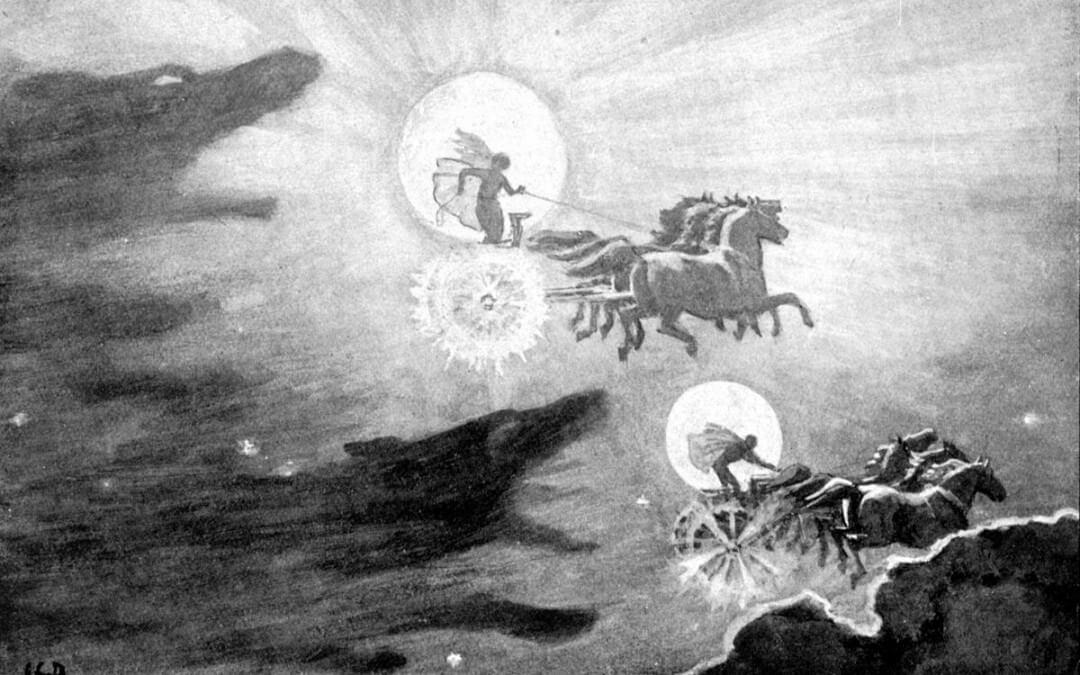by Zabaan | May 31, 2015 | Ancient Greek, Classical languages, Literature, Sanskrit
What ancient Greek and Sanskrit can tell us about our thinking Apparently daunted by the task of representing such momentous events of history as the battle of Agincourt, the chorus of Shakespeare’s Henry V clamours desperately: “O for a Muse of fire, that...

by Zabaan | May 30, 2015 | Classical languages, Norse Mythology, Old Norse
The following passage is translated from the Prose Edda, an Old Icelandic anthology on Norse Myth written around 1220 by Snorri Struluson as a question and answer game between Odin, king of the gods, here called Hárr, lit. the high one, and Gangleri,...
by Zabaan | May 29, 2015 | Classical languages, Norse Mythology, Old Norse
In Norse mythology the earth is surrounded by an ocean encircled by the giant snake Jörmungandr, also called Miðgarðsormr (ð = th of modern English), literally the snake of the middle dwelling, i.e. earth. One day, Thor, the god of thunder, went fishing for it –...
by Zabaan | May 28, 2015 | Ancient Greek, Classical languages, Literature, Sanskrit
Both in the Vedic hymns and in the Homeric poems dawn is imagined as radiant young woman. The Vedic hymns describe her as she who, everyday anew, suffuses the world with vital energy and rouses its creatures form the inertia spread over the world by night. यूयं हि...
by Zabaan | May 28, 2015 | Classical languages, Old English
Both words in the phrase kith and kin are of Old English origin. Kith is from cȳð (ð is pronounced as a th in modern English), which means known and also crops up in an entirely different spelling the the word uncouth: unknown, unfamiliar, wild,...

by Zabaan | May 27, 2015 | Ancient Greek, Classical languages, Script
Νέστορος [εἰμὶ] εὔποτ[ον] ποτήριο[ν]· ὃς δ’ ἂν τοῦδε π[ίησι] ποτηρί[ου] αὐτίκα κῆνον ἵμερ[ος αἱρ]ήσει καλλιστ[εφάν]ου Ἀφροδίτης. “I am Nestor’s cup, good to drink from. Who happens to drink of this vessel, forthwith the desire of fair-crowned...


